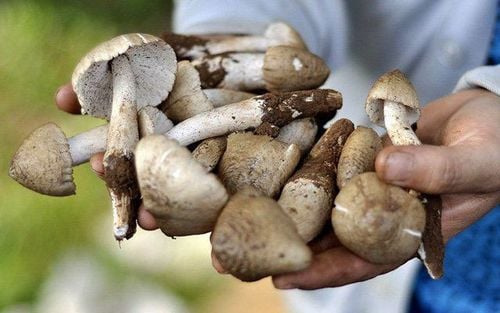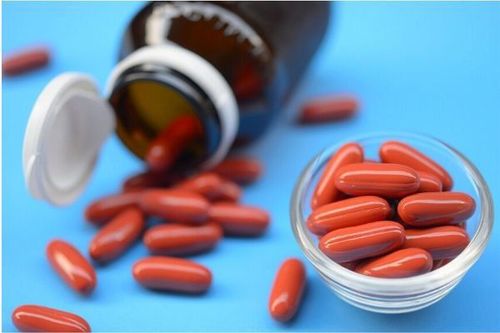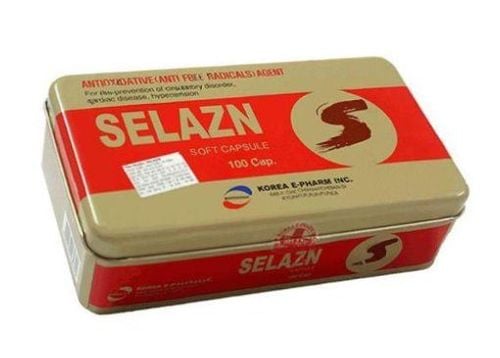This is an automatically translated article.
Wormwood is one of the popular herbs and has many uses in traditional medicine. This article will give you a more detailed look at wormwood, a review of its benefits and uses, dosage information, and potential downsides.
1. What is mugwort?
Wormwood, whose Latin name is Artemisia absinthium, is a highly valued herb with a distinctive scent, used as a medicinal herb with health benefits. Although mugwort is native to Europe, because of its easy growth in many different climates, wormwood can now be found in many parts of the world from Asia, Africa and whole Americas.
Wormwood has silvery-white or silver-green stems, yellow-green leaves, and flowers in the form of bright or pale yellow buds. All parts of the plant have been used medicinally in traditional medicine for hundreds of years.
This plant has become famous for being used to make wormwood wine (Absinthe). This is a wine of French origin that was favored by many artists in the 19th century, including the Dutch painter Vincent Van Gogh, and this wine has also caused many side effects for people. use.
Wormworm has long been considered a hallucinogen and a poison, so wormwood was banned in the United States for more than half a century from 1912 to 2007. Now, wormwood Research has been legally recognized and authorized for use in the United States.
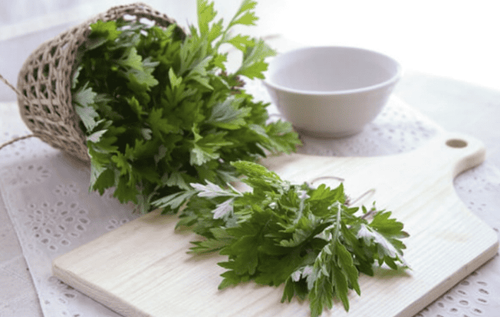
Ngải cứu là một loại thảo dược có lợi cho sức khỏe
2. Compounds present in mugwort and their chemical properties
Wormwood is often extracted or used to make tea. Wormwood oil is also made from the stem and leaves of wormwood, while used for extraction purposes or mixed with alcohol can use the entire composition of the plant.
These products contain little energy, vitamins or minerals but contain high amounts of plant compounds, a well-known chemical compound in mugwort known as Thujone.
This compound comes in two forms, alpha thujone and beta-thujone, which differ at the molecular level. Although these differences are few, they have different meanings. Alpha thujone has more toxicity and it is also the main ingredient present in mugwort.
Thujone has a stimulating effect on the brain through inhibition of gamma aminobutyric acid (GABA), which is a neurotransmitter that inhibits the central nervous system.
Although this complex has various benefits, when ingested in large amounts, thujone is toxic and often causes epileptic symptoms and possibly even death.
To sum up, mugwort is a valuable herb containing thujone that offers many benefits but can be toxic if used in excess.

Ngải cứu có thể gây ra các triệu chứng động kinh nếu sử dụng nhiều
3. Benefits and uses of mugwort
In addition to being used to make absinthe and other products, mugwort also has many uses in medical practice in countries outside of Europe, such as traditional Chinese medicine.
Although the common side effects of wormwood alcohol include hallucinations, insomnia, and seizures, mugwort is not considered a hallucinogen. Because when drinking large amounts of alcohol containing thujone, these symptoms may be due in part to the effects of alcohol. However, there is no scientific evidence that the cause of these symptoms is alcohol or the mugwort found in alcohol. Therefore, these symptoms have only historical value and have not been clearly proven.
3.1. Pain relief effect
Wormwood has long been used in pain relief and has anti-inflammatory properties, used in pain relief from osteoarthritis.
In a 4-week study in 90 adults with knee osteoarthritis, patients who were given 3% wormwood ointment 3 times daily had improved pain levels and motor function. While those with no treatment, pain and stiffness levels did not decrease.
It should be noted that wormwood itself should not be applied directly to the skin because too high a concentration of compounds can cause skin burns.
Currently, there is not enough evidence to prove whether tea and wormwood extracts have analgesic effects.
3.2. Anti-parasitic effect
Wormwood has also been used to treat gastrointestinal worm infections since ancient Egypt. This antiparasitic property is considered an effect of thujone. However, the evidence for this specific effect remains historical.
Notably, animal and laboratory studies suggest this herb may fight tapeworms and some other parasites, although these studies may not be applicable to humans. . Therefore, more in-depth studies are needed to evaluate this effect of wormwood.

Chất Thujone có trong ngảu cứu có tác dụng điều trị nhiễm giun đường tiêu hóa
3.3. Antioxidant properties
In addition to thujone, wormwood also contains another interesting compound, chamazulene. The effects of chamazulene act as an antioxidant and they are most concentrated in the pre-flowering period.
Antioxidants like chamazulene can fight oxidative stress in the body, which can lead to cancer, cardiovascular diseases, Alzheimer's disease and a number of other diseases.
However, more research is needed on the properties of this compound.
3.4. Anti-inflammatory effect
Artemisinin is another compound found in wormwood that has anti-inflammatory effects. Prolonged inflammatory response is often associated with a number of chronic diseases of the body. Artemisinin inhibits cytokines, which are proteins secreted by the body's immune system that promote inflammation.
Studies show that mugwort can help alleviate Crohn's disease. This is a disease characterized by inflammation of the digestive tract. Symptoms may include diarrhea, fatigue, abdominal pain or other gastrointestinal problems.
In a study of 40 adults with this condition, patients who took a supplement containing 500 mg of mugwort 3 times daily experienced reduced symptoms and decreased need for steroid anti-inflammatory drugs after 8 weeks of treatment. compared with the placebo group. However, more studies are needed to prove this effect.
In summary, mugwort has many benefits such as pain relief, anti-inflammatory, antioxidant and antiparasitic. However, these benefits require more scientific evidence.
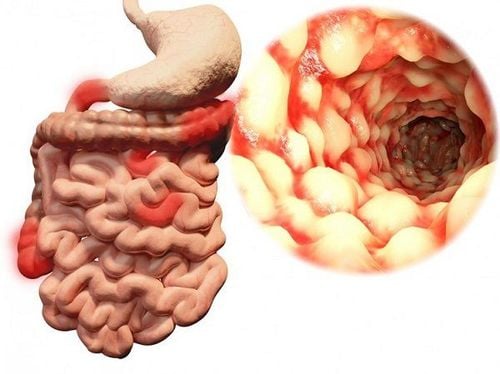
Ngải cứu có thể giúp làm giảm nhẹ bệnh Crohn
4. Dosage and level of safety
Because of the lack of evidence, there are no guidelines for the exact amount of use of mugwort. In addition, many government organizations have placed restrictions on wormwood products because of the toxic effects of the compounds present in wormwood.
The European Union (EU) has limited foods prepared with wormwood to 0.23 mg thujone/pound (0.5 mg/kg), the threshold for alcoholic beverages such as wine mugwort is 16mg/pound (35 mg/kg).
In the United States, the FDA restricts all products containing thujone to 10 parts per million (ppm) or less). This amount of thujone is considered insignificant and safe in most people. Wormwood tea products and extracts have not been approved by the FDA. If you are not sure about the dosage to take, you should consult your doctor.
5. Notes and possible side effects of mugwort
Patients who are sensitive or have certain health problems should not use wormwood. These conditions include:
Pregnancy: you should not use mugwort if you are pregnant as it can cause miscarriage; Are breastfeeding; Epileptic. Thujone stimulates the brain and can cause seizures. In addition, wormwood can also reduce the effect of anti-epileptic drugs such as gabapentin and primidone; Heart disease: the use of the herb in patients with heart disease who are being treated with Warfarin may cause gastrointestinal bleeding; Kidney disease: Wormwood is toxic to the kidneys and increases the risk of kidney failure; Allergy.

Những bệnh nhân có cơ địa nhạy cảm có thể bị dị ứng khi ăn ngải cứu
Excessive use of mugwort can cause digestive upset, kidney failure, nausea, vomiting and convulsions. However, you should not experience these problems if you use a small amount. In addition, mugwort can cause burns if applied directly to the skin and should be used in ointment or liquid form.
Finally, you should not use any wormwood products for more than 4 weeks. Exceeding this time is considered prolonged and long-term use of this herb has not been proven in terms of safety and side effects.
If you are looking to build a healthy diet but still don't know where to start, you should go to the nutrition department of a reputable medical facility for examination and advice.
The Department of Nutrition of Vinmec International General Hospital is a specialty in the research and application of dietary healing methods and the development of appropriate nutritional regimens for each different pathology, based on the suitability with status of Vietnamese people.
Providing services in the field of clinical nutrition: providing normal and pathological diets for inpatients, nutritional rehabilitation for malnourished patients, counseling Counseling and guiding the patient's diet.
To register for examination at Vinmec International General Hospital, you can contact Vinmec Health System nationwide, or register online HERE.
Reference source: healthline.com




